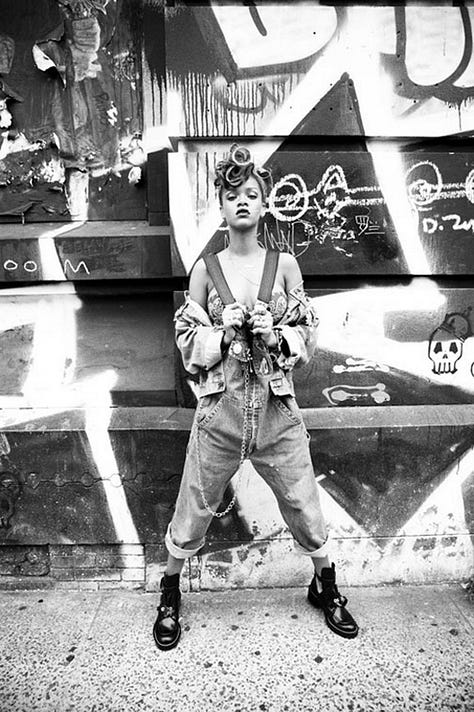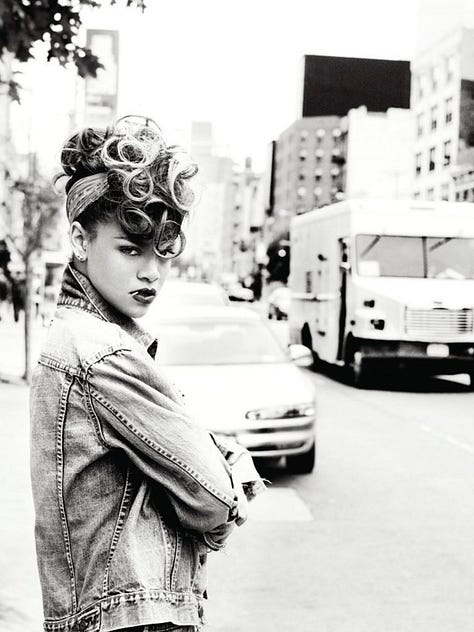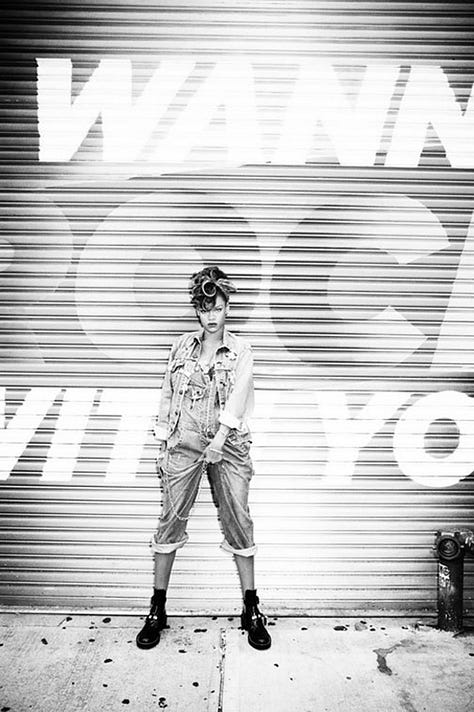14 Years of Talk That Talk: Rihanna’s Defining Era
Bold, brash, and unapologetic, this era was when Rihanna cemented her power as a pop icon.
Fourteen years ago, Rihanna released Talk That Talk, and with it, she delivered what Rolling Stone called her “tightest, most assured yet” record: a relentlessly catchy, danceable pop album that doubled down on her provocative edge.
Equally important was how Rihanna leveraged the album to solidify her sexual agency as part of her brand. With highly provocative lyrics and audacious metaphors, such as in “Cockiness (Love It)” where she boldly asserts, “Suck my cockiness, lick my persuasion,” she didn’t merely flirt with controversy—she owned it. Critics and outlets recognized this transformation, with Rolling Stone famously dubbing her “pop’s bad-girl-in-chief,” acknowledging her newfound authority over both her image and her music.
But even in the midst of those critiques, the album’s high points are revelatory. Zoladz praised “We Found Love” as a kind of emotional mantra — simple yet profound:
“In three and a half minutes … the line moves from being a great pop lyric to a triumphant mantra to something suggestive of a whole spectrum of unspoken emotion.” - Lindsay Zoladz (Pitchfork)
There’s something powerful in that simplicity — and it’s precisely what allowed Rihanna to become a symbol of cathartic club pop. The album may lack rigid cohesion, but its emotional peaks land hard, and its sonic experimentation foreshadowed the risk-taking that would define her later work.
The album’s artistic choices demonstrated both risk and ambition. Critics such as Pitchfork highlighted its eclectic nature, calling it “three different records” stitched together, yet this very tension became a strength. By juxtaposing sleazy bangers, introspective ballads, and mid-tempo club tracks, Rihanna showcased her ability to navigate multiple emotional and sonic landscapes within a single project, signaling her versatility as an artist.
On the charts, Talk That Talk was a winner. It debuted at No. 3 in the U.S., eventually becoming 3× Platinum. In the UK, it went double-platinum, and during its peak she held both the No. 1 album and the No. 1 single (“We Found Love”) — marking her as a pop force few others could match.



Yet the album wasn’t all roses. Critics praised its boldness but also questioned how sustainable its sexuality-driven persona would be. Some saw the lyrics as overly explicit or gimmicky; others welcomed the confidence and authenticity in her delivery.
But that tension — between the seductive and the substantive, between club bangers and vulnerable ballads — is exactly what made Talk That Talk a turning point. It wasn’t just another pop album: it was Rihanna asserting control over her image, her sound, and her narrative.
The impact of Talk That Talk on Rihanna’s career is undeniable, marking a period of significant commercial achievement and artistic growth. The album delivered her longest-running No. 1 hit at the time with “We Found Love,” which spent ten non-consecutive weeks atop the Billboard Hot 100. Its global chart performance reinforced her status as a cross-genre pop powerhouse, proving she could dominate airwaves across R&B, pop, and dance music markets alike.
Talk That Talk also cemented Rihanna’s position in the emerging EDM-pop landscape. “We Found Love” was more than just a chart-topping single; it marked a transformative partnership with Calvin Harris that placed her firmly within the mainstream electronic dance sphere. This experiment with EDM sounds was not a one-off, but the beginning of a sonic path she would continue to explore in future projects.
Finally, Talk That Talk laid the groundwork for future reinvention. The confidence she radiated during this era paved the way for subsequent albums like Unapologetic and ANTI, where she would delve deeper into vulnerability, emotional nuance, and sonic experimentation. Beyond the music itself, the era fortified her identity as an artist capable of being simultaneously tough, sexy, vulnerable, and a chart dominator, a combination that would define Rihanna as one of the most influential pop icons of her generation.
In the years that followed, she built on this moment, pushing into more introspective territory (with Unapologetic) and reinventing herself again (with ANTI). Fourteen years later, Talk That Talk still resonates — as a bold declaration of pop power and personal autonomy.



